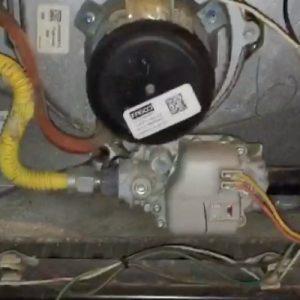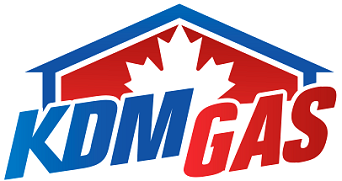 Your furnace is an essential appliance that helps keep you warm and comfortable in your home during colder months. When it starts experiencing problems producing heat, your home can become uncomfortable and at times unlivable. But how do you know if your furnace is experiencing issues that prevent it from functioning correctly? We discuss some of the signs of a malfunctioning furnace to help you determine if you need your furnace repaired.
Your furnace is an essential appliance that helps keep you warm and comfortable in your home during colder months. When it starts experiencing problems producing heat, your home can become uncomfortable and at times unlivable. But how do you know if your furnace is experiencing issues that prevent it from functioning correctly? We discuss some of the signs of a malfunctioning furnace to help you determine if you need your furnace repaired.
The Furnace Isn’t Turning On
As your furnace ages, you’re likely to have more trouble turning it on and keeping it running. If you’ve tried to start it multiple times or you’re constantly restarting it throughout the day, the unit likely needs to be checked out. Replacing or repairing the affected parts of your unit should help resolve the problem. You might be tempted to try to figure out the problem yourself, but attempting a DIY fix can be dangerous, especially if you have natural gas or an electric furnace. For that reason, you should contact a professional.
Your Unit Is Blowing Cold Air
A furnace is meant to heat your home. When it’s blowing cold air rather than hot, it’s time to schedule a check-up. Various factors can cause your furnace to fail to produce heat, including a broken or clogged blower motor, a dirty air filter, a blocked air duct, or problems with the thermocouple or pilot light. Most of these are complex components that need to be assessed by a professional.
You Can Smell Gas
Furnaces usually smell like the fuel they use, especially when you turn them on for the first time after a period of disuse. However, this smell dissipates as the system runs. If you can still smell gas even though your unit has been running for a while, turn off your furnace and shut down the gas supply. Contact an HVAC professional to assess and repair the cause of the smell.
You Can Hear Weird Noises
If your unit makes abnormal sounds, there may be an issue developing or a pre-existing problem. Some of these weird noises may include clicking, rattling, humming, banging, scraping, or squealing. Different furnace issues may result in different noises. For example, excessive scrapping or humming may indicate a problem with your blower motor. No matter the type of noise you hear, contact a professional.
You’re Always Adjusting the Thermostat
Constantly adjusting the thermostat is annoying. If you find yourself doing this more times than usual, it’s time to schedule a technician to take a look at your furnace. The thermostat indicates how much heat your furnace needs to emit and what temperature to maintain. If your home never reaches the right temperature, this may indicate a problem with the thermostat’s wiring or with your burner or blower motor. It’s essential to contact an HVAC expert to ascertain the cause.
You’re Getting Unusually High Heating Bills
If your heating bill continually grows over time without an equivalent increase in use, you likely have a problem with the efficiency of your furnace. Decreased efficiency means your furnace works twice as hard to produce the same amount of heat, leading to higher heating bills. Various problems can cause this, and an expert can help determine the problem with your unit and repair it.
You’re Experiencing Poor Airflow
A furnace doesn’t only produce heat. It’s also responsible for transferring that heat throughout the home. If your unit cannot provide sufficient airflow, then it’s time to contact an HVAC professional. Dirty filters, clogged ducts, and problems with the blower motor can cause issues with airflow.
You Experience Frequent Cycling
If your furnace is turning off and on more often than usual, then it’s probably over cycling. This means it’s running more than it should. Over cycling can be caused by improper air circulation, a clogged air filter, or problems with the thermostat.
Your Unit is Old
The average lifespan of a furnace is about 15 years. It’s important to know how old the furnace is before you move into a new home. You should also ask if the unit has had any recent repairs. This will help you better understand your HVAC system. Sometimes your furnace may be beyond repair, and you may have to buy a new one.
